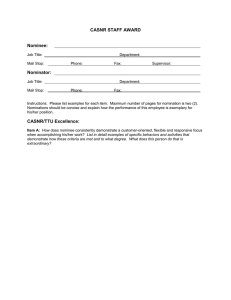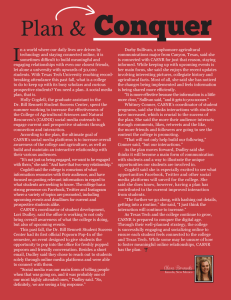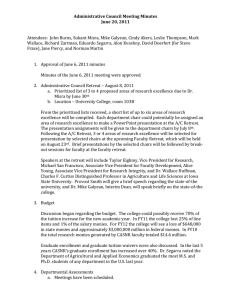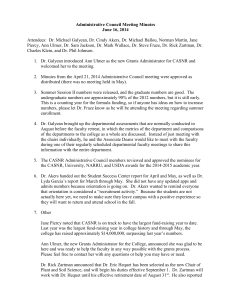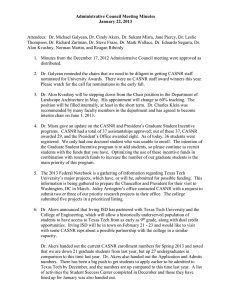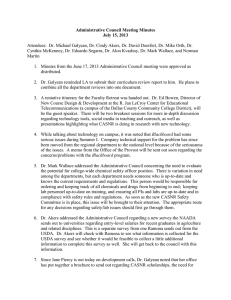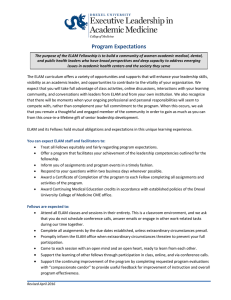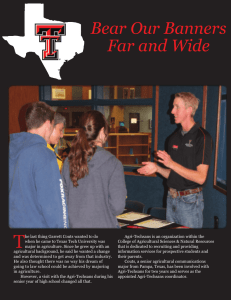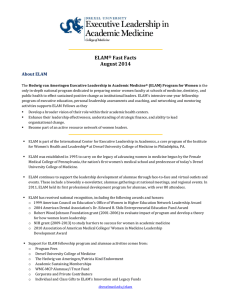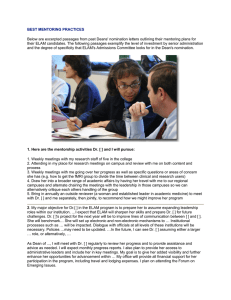W Getting Ready for the Change
advertisement
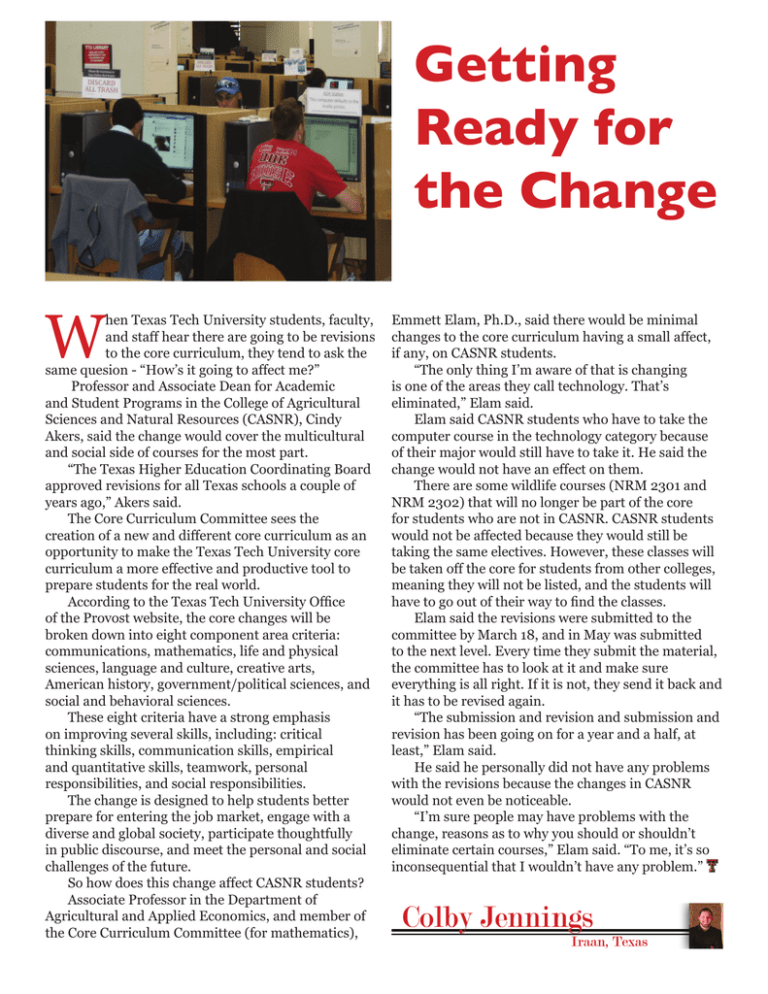
Getting Ready for the Change W hen Texas Tech University students, faculty, and staff hear there are going to be revisions to the core curriculum, they tend to ask the same quesion - “How’s it going to affect me?” Professor and Associate Dean for Academic and Student Programs in the College of Agricultural Sciences and Natural Resources (CASNR), Cindy Akers, said the change would cover the multicultural and social side of courses for the most part. “The Texas Higher Education Coordinating Board approved revisions for all Texas schools a couple of years ago,” Akers said. The Core Curriculum Committee sees the creation of a new and different core curriculum as an opportunity to make the Texas Tech University core curriculum a more effective and productive tool to prepare students for the real world. According to the Texas Tech University Office of the Provost website, the core changes will be broken down into eight component area criteria: communications, mathematics, life and physical sciences, language and culture, creative arts, American history, government/political sciences, and social and behavioral sciences. These eight criteria have a strong emphasis on improving several skills, including: critical thinking skills, communication skills, empirical and quantitative skills, teamwork, personal responsibilities, and social responsibilities. The change is designed to help students better prepare for entering the job market, engage with a diverse and global society, participate thoughtfully in public discourse, and meet the personal and social challenges of the future. So how does this change affect CASNR students? Associate Professor in the Department of Agricultural and Applied Economics, and member of the Core Curriculum Committee (for mathematics), Emmett Elam, Ph.D., said there would be minimal changes to the core curriculum having a small affect, if any, on CASNR students. “The only thing I’m aware of that is changing is one of the areas they call technology. That’s eliminated,” Elam said. Elam said CASNR students who have to take the computer course in the technology category because of their major would still have to take it. He said the change would not have an effect on them. There are some wildlife courses (NRM 2301 and NRM 2302) that will no longer be part of the core for students who are not in CASNR. CASNR students would not be affected because they would still be taking the same electives. However, these classes will be taken off the core for students from other colleges, meaning they will not be listed, and the students will have to go out of their way to find the classes. Elam said the revisions were submitted to the committee by March 18, and in May was submitted to the next level. Every time they submit the material, the committee has to look at it and make sure everything is all right. If it is not, they send it back and it has to be revised again. “The submission and revision and submission and revision has been going on for a year and a half, at least,” Elam said. He said he personally did not have any problems with the revisions because the changes in CASNR would not even be noticeable. “I’m sure people may have problems with the change, reasons as to why you should or shouldn’t eliminate certain courses,” Elam said. “To me, it’s so inconsequential that I wouldn’t have any problem.”
